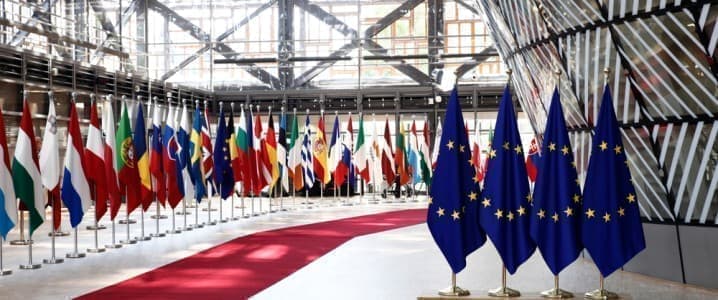Europe’s clean-energy crusade has hit a wall of its own making. The EU’s leaders vowed to slash emissions by 90% by 2040, but as electricity bills climb and factories falter, the political consensus that once seemed unshakable is beginning to crack. What began as a climate ambition is turning into an economic rebellion.
Next month will see world leaders gather for COP30—the climate conference that sees countries make political and financial pledges in a bid to arrest what many argue is irreversible planetary destruction. This year, the EU has been uncharacteristically slow in finalizing its latest round of pledges. The reason for this tardiness was a rising wave of criticism from some EU member states that have started feeling the pinch of transition costs.
The advertising said switching to wind and solar will lower electricity bills. Reality suggests it has been the other way round: wind and solar need to be backed up by baseload generation, and that generation needs financial support to keep standing by for when needed, adding to electricity bills instead of lowering them. Governments have also increased taxation on electricity to be able to financially support that very same transition that would, the argument goes, ultimately make energy so very cheap.
That moment is far in the future, if there at all. In the meantime, Europeans are struggling to make ends meet because when energy is expensive, everything else is expensive as well. Their leaders are struggling to convince their voters they would need to endure more pain to make the transition work—except there is zero certainty it would work, even with more financial pain. The reason: the EU’s overwhelming dependence on imports. The European Union, unlike China, cannot pursue the energy transition safe in the knowledge that it is using its own resources and boosting its own economy. The European Union is almost entirely dependent on resources from overseas to pursue the energy transition it views as vital and unquestionably necessary.
In fairness, China overdid the economic boost through stimulating transition-related industries. In Europe, the opposite is happening: the dependence on imported raw materials and components, stemming from rising local energy costs that are hurting the competitiveness of local manufacturers, has led to creeping deindustrialization. It is this deindustrialization that has pitted national leaders against the central ruling organ of the bloc and stalled the push for new net-zero pledges ahead of COP30. The consensus on the unquestionable nature of the transition is pretty much gone.
“There’s a concern that the cost of emissions-reduction regulations could fuel inflation alongside high energy costs that have already been hurting the EU’s industrial competitiveness,” one BloombergNEF told its sister publication, commenting on the EU’s troubles in finalizing its 2040 emission reduction targets. Those were supposed to be finalized last week, and it was, in a way—with some pretty major concessions to critics of the current political trajectory of the bloc. Just a year ago, these concessions would have been unthinkable. Now, they are just the start of what could end up being an unwinding of the net-zero narrative.
The 2035 ban on the sales of internal combustion engine cars, for instance, will be subject to a review to see if it is still achievable, which it is not and has never been, despite all the subsidies being thrown at EV makers and buyers. Even with all these subsidies, electric cars remain a small portion of the total car fleet on EU roads.
Carbon credits were also discussed as a means of pursuing the 2040 net-zero target instead of direct emissions cuts, which some national leaders argue would wreck their economies—and they are not wrong. “These ideological proposals [2040 climate target] are more proof that Brussels bureaucrats have already lost basic contact with reality. They have no idea what economic danger the European, and unfortunately, the Slovak industry is in,” Slovakia’s environment minister, Tomas Taraba, said last month in comments on the net-zero target discussions.
The frank statement reflects the views of many business executives not only in Slovakia but across the EU. Warnings about compromised competitiveness because of exorbitant energy costs have been raining down on Brussels for years now. Brussels, that is, the European Commission, has been promising to do something about it, but without interfering with its emission-cutting plans. So far, the best it has come up with is extending the emission-trading scheme that would lead to further hikes in costs as it penalizes the transport sector and households for using hydrocarbon energy, and cutting red tape for wind and solar.
Wind and solar, by the way, are struggling because overcapacity is more frequently leading to negative electricity prices, which have compromised the profitability of developers and operators, making them rethink their future investment plans. The EU leadership has a lot on its plate, and the meal’s name is Reality Check. “We need decarbonization, but decarbonization must never mean deindustrialization,” the German finance minister said recently. That’s quite a conundrum.
By Irina Slav for Oilprice.com
More Top Reads From Oilprice.com:
